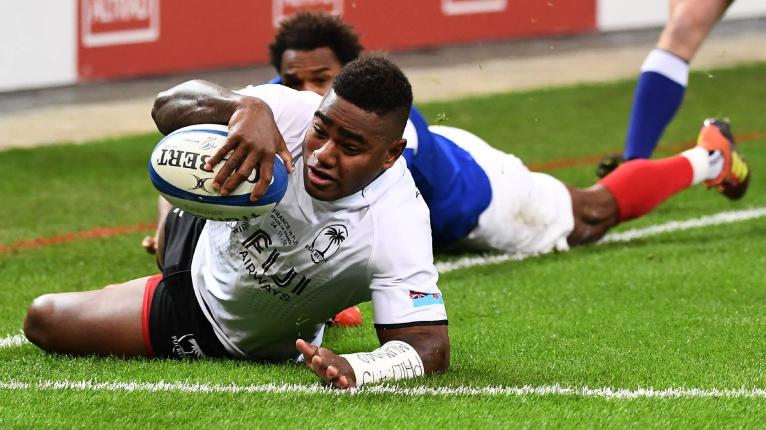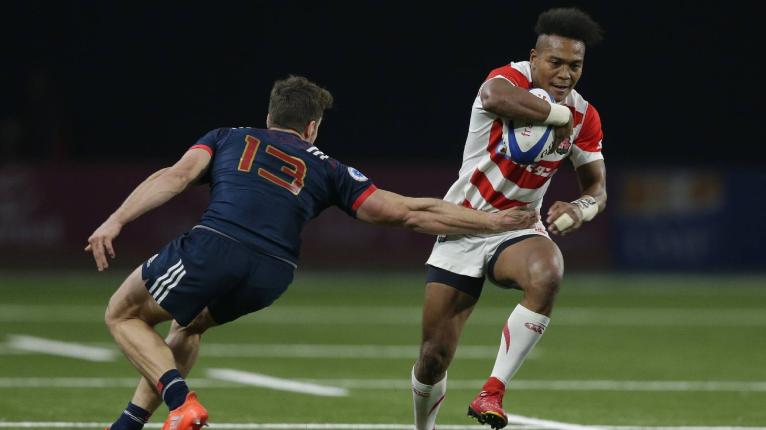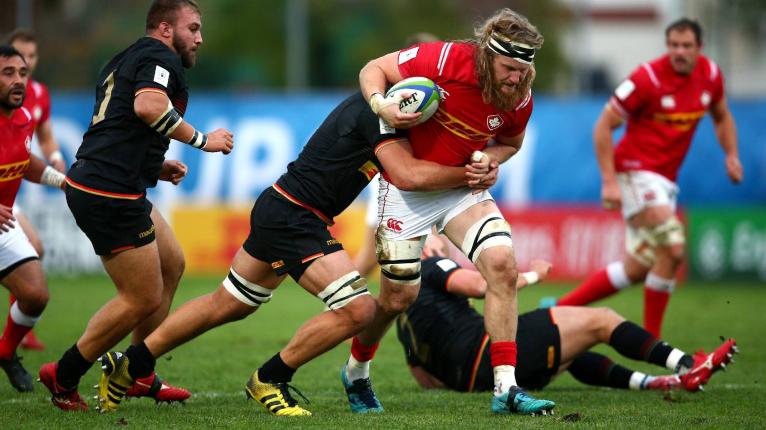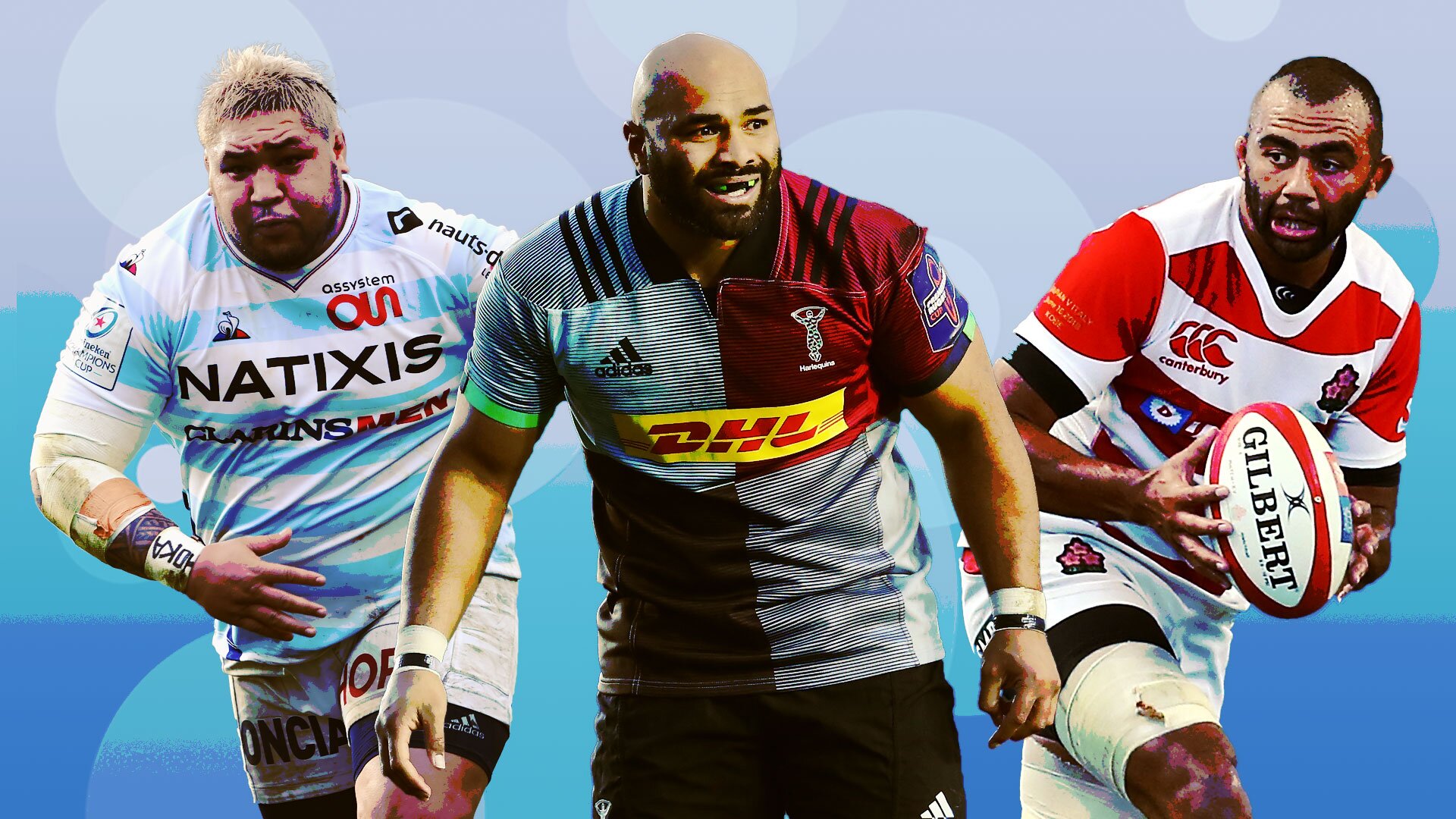Fiji the team to beat in Pacific Nations Cup as World Cup preparations set to kick-off

Most of the hype within the rugby fraternity over the past fortnight has surrounded the Rugby Championship and its implications for the upcoming World Cup in Japan.
Whether it’s been about the All Blacks, Wallabies, Springboks or Pumas, everyone has been strictly focused on the southern hemisphere’s premier nations and where they rank eight weeks out from rugby’s premier event.
What that has blinded many rugby fans from is the imminent kick-off of the Pacific Nations Cup this weekend, which effectively acts as the warm-up tournament for an array of tier two nations.
Plenty of these countries possess the potential to spring a surprise or two in a couple months’ time, and the Pacific Nations Cup acts as a series of fixtures for them to hone their respective game plans and styles of play in the lead-up to the World Cup.
Fiji, in particular, has been identified as arguably the biggest threat of all the ‘minnows’, with their increasingly impressive performances over the past two years turning many heads.
A Ben Volavola drop goal two minutes into injury time to secure a 22-19 win over Italy in Suva two years ago was followed by an unlikely 27-22 victory over Scotland at ANZ National Stadium a week later.
A double scalp against tier one opposition in a single year was unprecedented for Fiji up until that point, and they continued their unexpectedly good form with a Pacific Nations Cup title and came within three points of a maiden upset over Ireland in Dublin.
John McKee’s side added another Pacific Nations Cup crown to their tally in 2018 – their fourth straight title – and although they were trounced 54-17 by the Scots in a re-match in Edinburgh last November, they rebounded well to take the cake in a 21-14 victory against France in Paris two weeks later.
Fiji’s success against Les Bleus should rank alongside their 2007 World Cup win against Wales as one of the biggest upsets they have produced in the professional era, and it underlined the danger they pose to fellow pool members Australia, Wales, Georgia and Uruguay at this year’s tournament.
In that match, it was the star duo of Semi Radradra and Josua Tuisova that set the Stade de France alight.
However, despite both being named in the Flying Fijians’ extended 42-man pre-World Cup squad last month, neither will suit up for their nation in their Pacific Nations Cup opener against Japan.

Both should still feature later in the tournament, but that doesn’t mean Fiji aren’t lacking in firepower ahead of their clash in Kamaishi on Saturday.
The surprisingly electric Peni Ravai, veteran Campese Ma’afu and Olympic gold medal-winner Leone Nakarawa help contribute to a formidable tight five, while powerhouse loose forwards Viliame Mata and Dominko Waqaniburotu will be handfuls.
New Melbourne Rebels signing Frank Lomani and Racing 92 pivot Volavola are a tried and tested combination in the halves, and should together guide their audacious midfielders and outside backs – which includes the in-form Waisea Nayacalevu and fan favourite Patrick Osborne – around the park with haste and attacking intent.
Their additions to the side means it will be a big task for Japan to take down the reigning champions at the Kamaishi Recovery Memorial Stadium, but the Brave Blossoms have a strong squad of their own.
Head coach Jamie Joseph last week named a 31-man squad for the Pacific Nations Cup, and even without injured or ineligible personnel like Rahboni Warren-Vosayaco, Ben Gunter and Grant Hattingh, there is still a lot to like about this side.
The experience of Shota Horie, Luke Thompson, Hendrik Tui, Fumiaki Tanaka, Yu Tamura and national skipper Michael Leitch will be invaluable as their World Cup preparations get underway.
Loose forwards Pieter Labuschagne and Amanaki Mafi have been standouts at Super Rugby level over the past few seasons, while the threat of speedster Kotaro Matsushima out wide shouldn’t be underestimated.
Under the tutelage of Joseph and his assistants, Japan have the ability to operate as a cohesive unit.
When at their best, they have tested Wales, drawn with France and toppled Italy in the years following their famous victory over South Africa at the 2015 World Cup.

It makes them a difficult assignment for not just Fiji, but also next week’s opposition, Tonga.
The ‘Ikale Tahi have had a disjointed run of fixtures since the last World Cup, playing just 16 tests since then, recording only seven wins.
Still, Toutai Kefu’s team should not be taken lightly, with their forwards an especially threatening prospect.
Former All Blacks squad member Ben Tameifuna returns to add to his seven test caps, and is featured alongside powerful prospective debutant Sam Lousi and testicular cancer survivor Nasi Manu.
The presence of Castres lock Steve Mafi, Glasgow prop Siua Halanukonuka and Ospreys front rower Ma’afu Fia provides depth to the pack, while out wide, Siate Piutau’s leadership in the midfield will be vital, as will the running game and astute goal kicking of halfback Sonatane Takulua.
There is a fair amount of talent in this Tongan side, but the most pressing concern for Kefu is whether his players can gel on the international stage after limited chances to do so in preceding years.
If they can do that, then results could flow in their favour, but that much is easier said than done with such a short timeframe to work with.
Continue reading below…
Neighbours and this week’s opponents Samoa, meanwhile, have called upon a raft of players from all corners of the globe.
Old heads Motu Matu’u, Logovi’i Mulipola, Filo Paulo, Jack Lam, Faifili Levave, Ray Lee-Lo and Alapati Leiua will join skipper Chris Vui in leading the way for Steve Jackson’s team, which has some exciting additions.
Former sevens star Belgium Tuatagaloa will use the international arena as an opportunity to find a new club after being cut from French club Valence Romans for opting to pursue his test ambitions.

He’ll link up with fellow debutant Johnny Vaili, JJ Taulagi and Ashee Tuala as part of an intriguing outside back combination.
Without key playmaker Tim Nanai-Williams, the inexperienced duo of AJ Alatimu and UJ Seuteni will be asked to steer the ship from first-five.
It’s a lofty expectation for the pair, who have just one test cap between them, considering Samoa have posted just five victories in the past three years, with three of those wins coming against minnows Germany and Spain last year.
If Samoa are to have any chance of making a statement against Ireland, Scotland, Japan or Russia, they need to resolve some deep-lying issues at this Pacific Nations Cup, beginning this week in Apia.
Across the Pacific Ocean lies the United States, who, in stark contrast to Samoa, have been steadily improving.
Two-time winners of the newly-formed Americas Rugby Championship, Eagles head coach Gary Gold has moulded together a sharp-looking roster since taking over from John Mitchell a year ago.
The squad is mostly made up of professionals, thanks to the inception of Major League Rugby, with no less than 29 players from the 50-man team coming from the United States’ premier domestic competition.
Some of the stars of the MLR – such as Malon Al-Jiboori, Hanco Germishuys, John Quill, Cam Dolan, Nate Augspurger and Thretton Palamo – have all been included, but there has been some room left for offshore talent.
Melbourne Rebels flanker Tony Lamborn is back, as is Saracens prop Tito Lamositele, Sale Sharks first-five AJ MacGinty, Cardiff Blues fullback Blaine Scully, and Harlequins midfielder Paul Lasike, who was formerly a running back for the Chicago Bears in the NFL.
A trio of players from the highly-successful USA Sevens outfit have also made the cut, with Ben Pinkelman, Martin Iosefo and Madison Hughes all looking to translate their skills from the sevens circuit into the test arena.
The depth of this USA squad is almost unparalleled in the Pacific Nations Cup, with Fiji and Japan the only other countries that can claim such prowess across the park.
The Eagles’ development as an international force was evident last year, when they registered their first win over a tier one nation in 94 years when they defeated Scotland 30-29 in Houston.
Placed in the ‘Pool of Death’ alongside Argentina, England, France and Tonga, the States won’t make the quarter-finals, but they certainly have the potential to raise a few eyebrows with the individuals they have at their disposal.
Their preparation for that daunting group starts in Glendale this weekend, when they take on fierce local rivals Canada.
The fact the Canadians only qualified for the World Cup through the Repechage rounds late last year, where they had to fend off Kenya, Germany and Hong Kong for a spot in Japan, represents a regression of sorts over the last couple of seasons.
It’s the first time the Canucks were forced to play that deep into the qualification system after losing two-match series to the USA and Uruguay, so head coach Kingsley Jones should be targeting this tournament as last-chance saloon to make amends before the World Cup commences.

Like the States, Canada have benefited significantly from the creation of the MLR, and the addition of their own franchise in Toronto has aided their cause, with 13 of their 43-man squad coming from the Arrows.
A further 13 have also been picked from the American clubs in the competition, including star halfback and captain Phil Mack, who led the Seattle Seawolves to back-to-back titles in their first two years in the MLR.
Also in similar fashion to the Eagles is that the Canadians have numerous players in their ranks that play overseas.
Utility forward Tyler Ardron will be heavily relied upon after two campaigns with the Chiefs as his nation’s first representative in Super Rugby, as will 33-year-old wing DTH van der Merwe, who will be eyeing up his fourth World Cup following the Pacific Nations Cup.
Many will have written Canada off from making a splash over the next few months, but if they can garner some results against the USA, Fiji and Tonga in the coming weeks, then there’s no denying that they can pick up some results against Pool C opponents Italy and Namibia later in the year.
PACIFIC NATIONS CUP
Pool A:
Fiji
Tonga
USA
Pool B:
Canada
Japan
Samoa
Fixtures:
Round One (27 July):
Samoa v Tonga at Apia Park, Apia
Japan v Fiji at Kamaishi Recovery Memorial Stadium, Kamaishi
USA v Canada at Infinity Park, Glendale
Round Two (3 August):
Samoa v USA at ANZ National Stadium, Suva
Fiji v Canada at ANZ National Stadium, Suva
Japan v Tonga at Hanazono Rugby Stadium, Osaka
Round Three (9-10 August):
Tonga v Canada at Churchill Park, Lautoka
USA v Japan at ANZ National Stadium, Suva
Fiji v Samoa at ANZ National Stadium, Suva
In other news:











































































